Purpose Goals Impact Report



A Purpose Health Coalition Report
















Sussex
It is working hard to provide a high-quality route through education and training, and later, opportunities for career advancement based on ability and potential, not connections.
By offering access to apprenticeships, mentoring, training, higher education and clear career pathways, it will no doubt later go on to reap the benefits of a diverse and enthusiastic workforce.
Throughout this report, Sussex Community NHS Foundation Trust demonstrates that it is highly focused on creating a level playing field for all through a comprehensive equality, diversity and inclusion approach.
This is embedded within a strategic plan that is executed and continually monitored in an entirely transparent manner via detailed reports charting priorities and progress.
Also notable are the trust’s staff networks which aim to promote friendly, safe spaces for staff, encourage conversations and connect employees with relevant external organisations.
Sussex Community NHS Foundation Trust has committed to measuring itself against the Purpose Goals; which cover 14 key areas where organisational change is needed to create equality for employees.
It is one of a growing number of purpose-led institutions, including NHS organisations, businesses, local authorities and universities, that have opted to take part in the process.
These organisations are given the opportunity to lay out in detail the steps they have taken to meet each goal and also to describe their future plans in an impact report.
Others can then pull from the reports and adopt programmes and strategies which they can use to boost their own purpose agenda.
The trust has proven itself to be highly accomplished in several of the Purpose Goals, but understandably still has some way to go in others.
Going through this process, however, demonstrates its willingness to put in the work to move forward in areas where it is lacking, and ultimately become a benchmark for other trusts.
Community NHS Foundation Trust has made it a priority to open its career doorway wide to young people from all backgrounds – a principled and highly commendable policy.

While our priority is to provide excellent care at the heart of the community, we know there is so much more that we can, and should, be doing to support local people to achieve their potential. The development of Integrated Care Systems gives us an opportunity to do this at scale working with health, social care and education partners across Sussex.
Quality of life is intrinsically linked to employment, and this is something that the NHS is in a strong position to provide. The range of roles that we offer is staggering, from housekeeping to healthcare, IT to administration. There really is a job for everyone, regardless of experience or interest, and that’s something that few employers can boast.
It is only right that we do everything we can to make these opportunities accessible to our local communities and help people into meaningful employment that provide long-term career prospects.
However, for us at SCFT it’s not just about the job. People are at the heart of the NHS and without our people, we could not do what we do.
Here at SCFT we want every individual to feel like they are part of something special. We want them to feel able to bring their authentic self to work and able to make a contribution that they know will be valued and appreciated, no matter what their role or their background. We have invested significant time and effort in ensuring that equality and inclusion is at the heart of our organisation and everything that we do. We are determined to create a working environment where our people thrive.
I firmly believe that a diverse workforce, which is representative of the communities we serve, can only improve the quality of care that we provide. But to help us achieve this, we need to change the way we traditionally recruit to our roles.
That’s why we are reaching out into schools to get young people thinking about alternative routes into careers with the NHS. We are creating apprenticeships for both school leavers and existing staff who are looking to develop and further their careers in a range of both clinical and non-clinical fields. We are creating jobs through the Government’s Kickstarter scheme, which helps young people into employment.
We are dedicated to supporting our existing staff to be the best that they can be. We have clear career pathways, offering fair progression opportunities to people based on their abilities. We provide mentoring, coaching and training, to support people to take the next step in their career and become the leaders that we know they can be, whatever their profession. At SCFT we show people that they can achieve their ambitions with us.
The Purpose Goals give us a realistic, tangible way to do this, and will help to guide us in areas where we could do better. We are at the start of this process, but we are committed to being a force for good in our local communities and doing what we can to reduce the inequalities that we know exist in our society.
Yes, the NHS is primarily about care and treatment, but we also know that there is so much more it can contribute to the quality of people’s lives, and I’m excited to see where this journey takes us.
As the largest provider of community NHS healthcare services in Sussex, we are well placed to see the impact that our work has on the local population.
Siobhan

NHS organisations can, and do, make a real and sustained difference to create positive change for their workers, patients and society at large. These organisations are central to their local communities and they can be accessible institutions that reach out to everyone.
As COVID-19 exacerbated existing health inequalities
and created a huge burden for the NHS, these organisations will also need help from elsewhere to recover and strengthen, just like the rest of the country. However, as one of our most wide-reaching and cherished public institutions, the NHS will be essential in leading the way by leveraging its position in communities and its size and power as an employer and organisational entity. In doing this, it can help level up the UK.
The Purpose Goals provide an ambitious and strategic solution to addressing the challenge, setting out for the first time the gaps that will need to be filled to ensure opportunity and fair outcomes are available to all across the country. The goals offer a common framework with which organisations can collate best practice and show impact across all of the key life stages and areas of concern. They provide the shared language needed to collectively discuss the challenges being faced and the solutions to existing inequalities.
That ambition should apply to one of the country’s most important and impactful institutions, the National Health Service. Of course, the NHS in its day-to-day function makes an enormous contribution to the public and individual good of the UK. As a commissioner and provider of healthcare, the NHS can target services and outreach to address directly the inequalities that exist in health outcomes and experiences, especially among those who suffer most under other forms of social or economic exclusion. Health and wellbeing are vitally important to the function of a happy, prosperous and equal country.
NHS organisations have a much wider reach than just health and many, rightly, now see themselves as important anchor institutions within their communities. Aside from the obvious health impacts, there are other aspects of the purpose agenda that the NHS is well placed to help address. The NHS is the largest single employer in the UK, as of September 2021 there were 1,205,362 NHS Hospital and Health Service staff, with jobs ranging from healthcare provision, information technology, administration and health policy. Its predominance in the employment market can be used to increase social mobility and spread opportunity throughout society.
By providing employment and career progression on such a large scale, the NHS makes a vital contribution to the economy, labour market and the available
opportunities for individuals across the country. The NHS can help ensure that it makes the best use of the incredible talent the UK has to offer by providing many people with worthwhile careers that contribute to the social good.
In its healthcare provision, organisation and information outreach, the NHS also has a sizable digital presence. COVID-19 has accelerated the digital transformation and NHS trusts now interact with patients and staff more than ever before. A Health Foundation report found that of those who received NHS care or communicated with the NHS in 2020, 97 per cent used technology and 82 per cent of NHS staff surveyed said they had used technology more in the past year. It is therefore in both the NHS’ interests and capabilities to contribute to making this transition fair and accessible.
Likewise the transition to a green and net zero economy has also accelerated. As it is such a large institution with large estates, efforts made by NHS organisations to use more renewable energy to run their services more sustainably will have a substantial impact. For example, in October 2020 the NHS adopted a multi-year plan with targets and milestones to become the world’s first carbon net zero national health system by 2040.
NHS organisations can have a wider impact on the economy through how it procures goods and services. Overall, the NHS has a budget of £130 billion. This spending power and its significant economic levers gives it real potential to ensure its extensive supply chains and procurement processes aid in the green recovery and social good more generally.
The NHS is held in high regard by the public and communities all across the country. Its presence in every region and community in the UK means that it can influence and speak up for those places and communities that might be at risk of being left behind. By utilising the voice, reach and reputation of the NHS, organisations like Sussex Community NHS Foundation Trust can truly act as anchor institutions to level up the regions in which they operate.
Equality of opportunity simply cannot be achieved without the participation of the National Health Service. NHS organisations are in a unique position to combat some of the barriers to upward social mobility that exist in the UK, and they have to be part of the solution. Sussex Community NHS Foundation Trust has already embarked on that journey and, as part of its work with the Purpose Health Coalition, will be working towards even more transparent and measurable outcomes.
“By providing employment and career progression on such a large scale, the NHS makes a vital contribution to the economy, labour market and the available opportunities for individuals across the country.”
It was originally known as Sussex Community NHS Trust, which was established in October 2010 through the integration of West Sussex Health and South Downs Health NHS Trust.
It became an NHS Foundation Trust in 2016 - a status which is awarded to hospitals that have shown high clinical standards, quality leadership, and patient responsiveness and safety.
The trust is still part of the NHS and must meet national standards and targets but it has more financial freedom to retain surpluses and choose how to reinvest this money.
Governors and members ensure that the trust is accountable and listens to the needs and views of its patients.
Every day, the community health trust’s expert teams provide essential medical, nursing and therapeutic care to more than 9,000 adults and children from a population of 1.3 million.
They look after some of the most vulnerable people - from health visitors caring for babies and young children through to multi-disciplinary community teams caring for the elderly.
More than 5,500 staff and 500 volunteers work in care homes, clinics, intermediate care units, people’s own homes, GP surgeries, schools and other community venues.
The trust works to help people plan, manage and adapt to changes in their health, to prevent avoidable admission to hospital and to minimise hospital stays.
The trust’s vision is to deliver a health and care system that puts excellent care at the heart of the community.
Its aim is to provide ‘the right services to the right people, in the right place, by the right people and at the right time, quality and cost’.
And the organisation does this by ensuring that it has in place strategies, structures, systems, staff and skills, underpinned by shared values.
The trust’s core values are: compassionate care, working together, achieving ambitions and delivering excellence.
Within its three-year strategy, it has built upon the core values, especially ‘working together’, to be inclusive, diverse and fair.
It does that by defining and measuring how the trust promotes inclusion in its action plan and by setting standards within its equality and diversity policy.
Sussex Community NHS Foundation Trust is keen to maintain excellence in meeting its purpose goals.
It is particularly focused on maintaining positive destinations post 16+, fair career progression and achieving equality through diversity and inclusion.
The trust believes in supporting everyone to be the best that they can be, and endeavours to empower individuals to bring their whole self to work and thrive.
It maintains an inclusive culture by supporting people to learn together and develop a deeper understanding of themselves and others. This ethos enables the trust to ensure the delivery of excellent care.
In order to maintain transparency, the trust publishes annual equality reports on how inclusive, diverse and fair it is as an organisation.
The reports also demonstrate how it complies with the Equality Act 2010 and other regulatory requirements.
The latest Annual Equality Report 2020-2021 showed the trust had made much progress in advancing equality.
However, it stressed that further work is required to remove structural and cultural barriers by increasing representation and promoting inclusive leadership and ally-ship behaviours.
Sussex
Foundation Trust (SCFT) is the main provider of community NHS health and care across Brighton and Hove, East Sussex, High Weald Lewes and Havens and West Sussex.
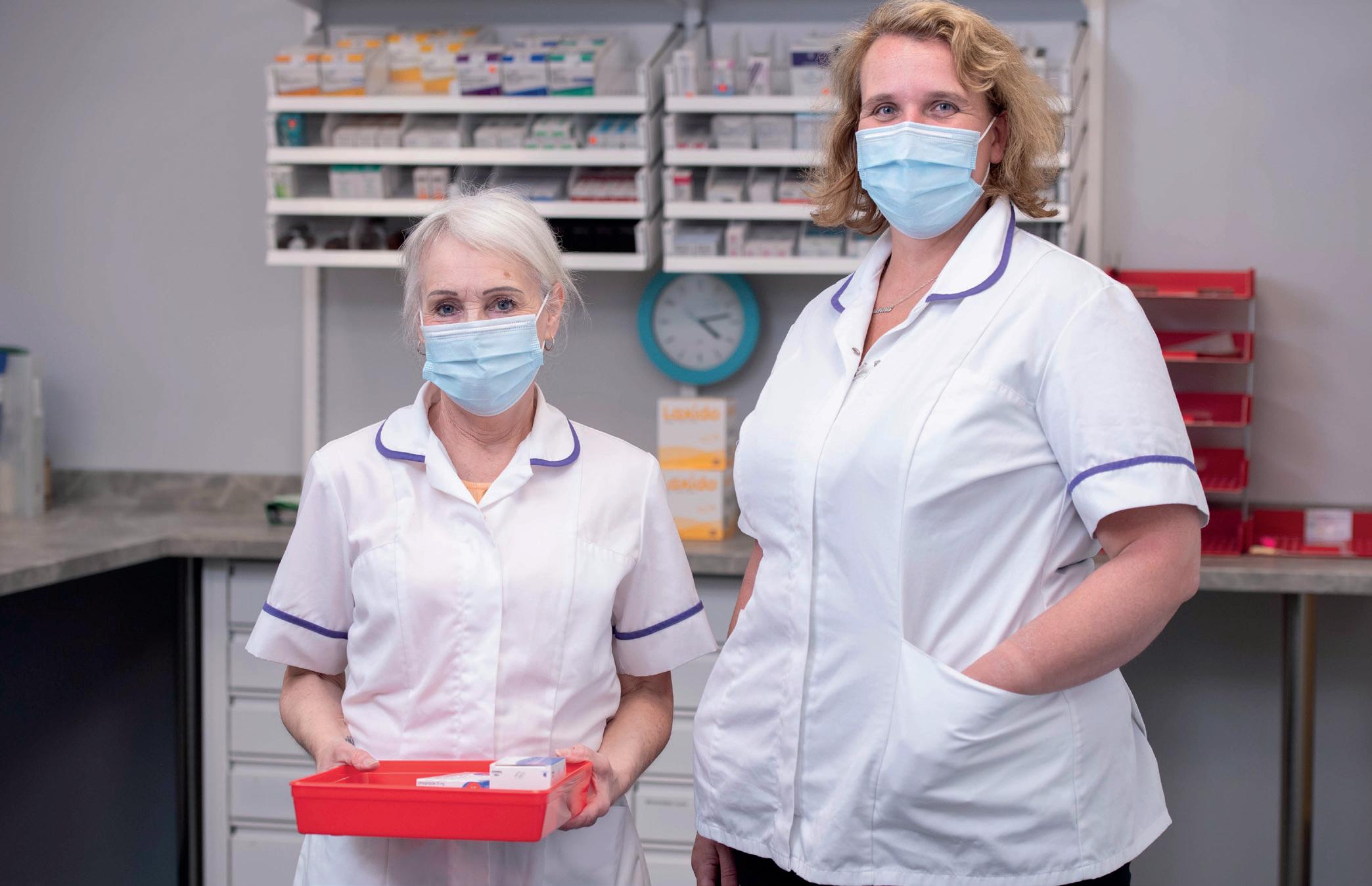
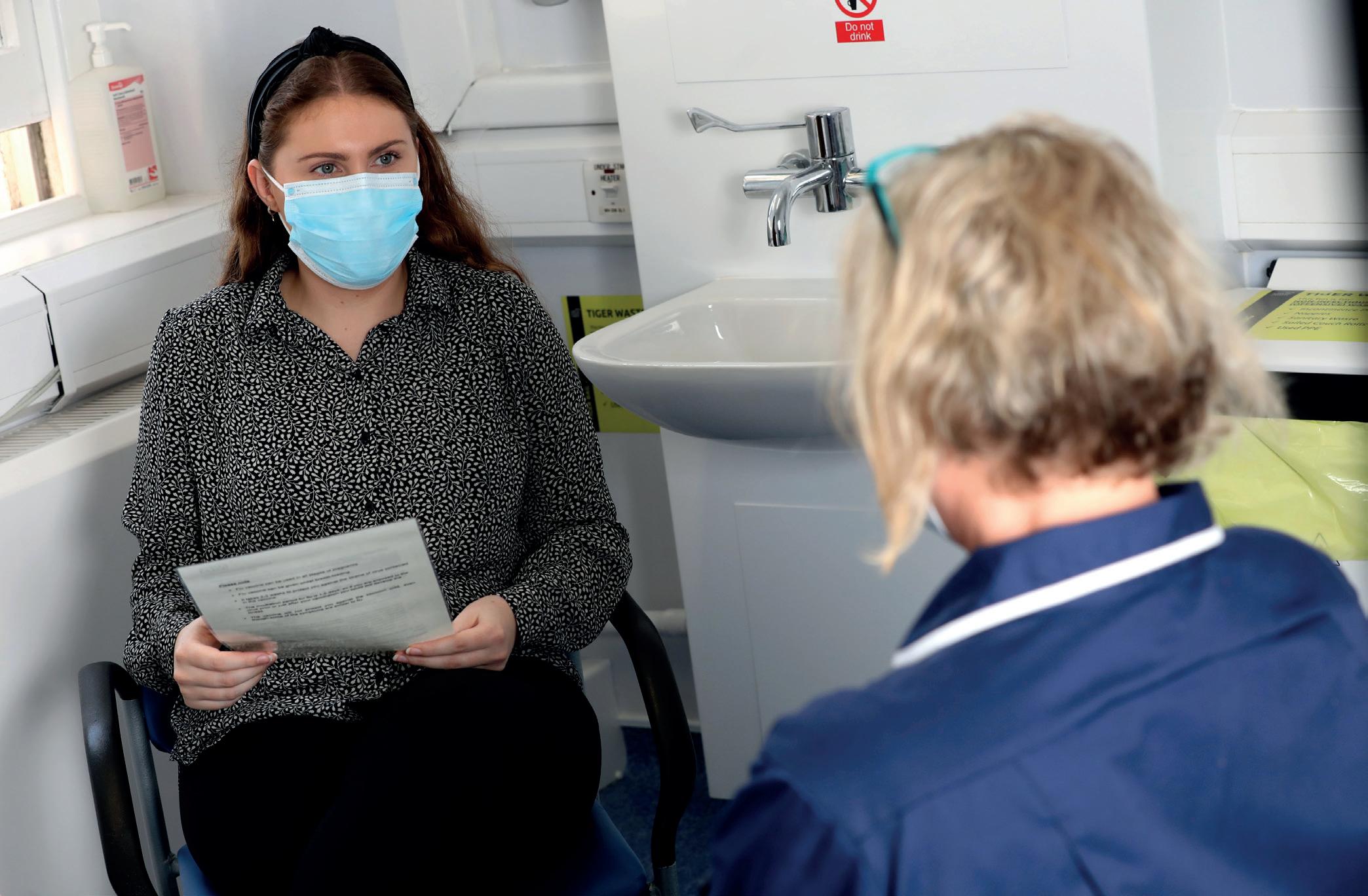
In 2015, as Secretary of State for International Development, Justine Greening MP led the UK delegation to the United Nations (UN). Along with 184 international partners, she helped to establish the UN’s Sustainable Development Goals (SDGs).
In 2017, the SDGs were made more ‘actionable’ by a UN resolution adopted by the General Assembly which identified specific targets for each goal, along with indicators used to measure progress towards each target.
These 17 interlinked, global goals were designed to be ‘a blueprint to achieve a better and more sustainable future for all’.
They marked a shift from the previously established Millennium Development Goals (MDGs), following the Millennium Summit of the United Nations in 2000.
In contrast to the MDGs, the SDGs were nationallyowned, country-led and targeted wealthy, developed nations as well as developing countries.
The SDGs emphasised the interdependent environment, social and economic aspects of development by centralising the role of sustainability. As Secretary for State, Justine recognised how useful a common set of accessible but ambitious objectives could be in galvanising action to effect change.
Since then, the COVID-19 pandemic has only exacerbated many of the problems relating to social inequality in the UK. The recovery is a chance for the United Kingdom to address these issues and level up but that requires updated and specific goals in order to outline, inspire and measure progress.
The Purpose Coalition aims to improve social mobility in the UK and has responded to this challenge with the launch of their own Purpose Goals in February 2021.
These new Goals build on the foundations laid by the UN’s SDGs by outlining 14 clear goals and draw on expertise provided by academia and businesses which has been applied to the unique challenges facing the UK in closing the opportunity gap.
They focus on key life stages and highlight the main issues that need to be resolved in order to create a level playing field for all in this country. The Purpose Goals are intended to guide how the urgent ambition to level up the UK can actually be achieved. The impact of the work carried out to do this can, and should, be measurable.
Sub-goals with quantifiable targets and measurements against which progress can be charted within the 14 goals are being developed by the Purpose Coalition in partnership with Purpose Coalition organisations like Sussex Community NHS Foundation Trust.
This will create a more transparent and mensurable framework with which to monitor and subsequently address problems of social mobility and inequality. The Purpose Goals are designed to look at the outcomes of CSR strategies and measures that organisations operate.
Many organisations are doing outstanding work and making important contributions to society but are still measuring this via inputs – a measure that focuses on pounds, pennies and numbers rather than real impact on human lives.
Crucially, these Goals are a shared framework. Justine and the wider Purpose Coalition believe that with a common understanding and objectives, there can be action that drives change on the ground.
Distinct entities, including universities, businesses, policymakers, communities and public sector organisations, can work together, with the shared Goals being a uniting and motivating foundation for progress.
As the problems which cause social inequality in the UK are interlinked, it seems that the response to these problems must also be collaborative.
The Purpose Coalition has encouraged businesses and universities to share their own best practice with other organisations so they are not only demonstrating their own commitment, but creating a shift towards purpose-led organisations.
The Goals can encourage an extension of this co-operative exchange of information which can be used to help level up Britain.
Strong foundations in Early Years 1
Successful school years 2
Successful school years 2
Goal 1: Strong Foundations in Early Years
Has the organisation helped to close the early years development gap by delivering the best possible start for every child?
1.1
Sussex Community NHS Foundation Trust has three nurseries based in Brighton, Hove and Crawley, which offer discounted rates for staff.
They follow the Early Years Foundation Stage curriculum and are rated ‘Good’ or ‘Outstanding’ in the Care Quality Commission inspection ratings.
They are open from 7am to 7pm and have places for children from 12 weeks to five years old. Childcare vouchers and government funded places are accepted.
Goal 2: Successful school years
Has the organisation helped to allow every child to successfully achieve their potential in attainment and development?
Sussex Community NHS Foundation Trust offers clinical services which aim to ensure that every child successfully achieves their potential in attainment and development.
Specialist nursing teams support children and young people who have complex needs with developmental difficulties, as well as their families.
They work directly with the parents to help them understand their child’s difficulties and how best to support their development.
The teams aim to promote resilience and consider the impact of the child’s needs on the whole family.
2.2
SCFT visits certain schools to raise awareness of the careers available within the NHS. This is currently done on an ad hoc basis.
The trust is involved in wider conversations within the ICS around joined-up outreach into schools but this is in the early stages of development.
Positive destinations Post 16+ 3
Does the organisation support young people and adults to have the choice of a high-quality route in education, employment, or training?
Apprenticeships can create skilled and motivated employees and, if used properly, can help to address skills shortages across the workforce.
In 2021, Sussex Community NHS Foundation Trust ran 37 apprenticeships, promoting them as work-based training programmes, and offering pathways for clinical and non-clinical roles.
Apprentices over the age of 16, devote 20 percent of their time to studying, while the rest is spent gaining skills, technical knowledge and practical experience.
By following this path, they gain a real qualification while working and increase their prospects of earning a higher wage.
On completion of the programme they remain with the employer where a job opportunity continues to exist. Otherwise, they are supported to seek alternative opportunities.
Among the roles currently filled by apprentices are a nursing associate, registered nurse degree, trainee psychological wellbeing practitioner, radiographer, rehab engineer, clinical scientist, emergency nurse practitioner and pharmacist technician.
Sussex Community NHS Foundation Trust has a scheme run by the Practice Development Nursing (PDN) Team with universities that offer nursing degrees.
Placements are advertised internally and unregistered staff can apply.
They are first interviewed by the PDN Team to see if they are suitable, then by the university.
For those staff who are successful, they continue working in the trust but study at the same time for their higher education course, applying their learning to their role in the trust.
3.3
The trust is part of the Kickstart Scheme run by the Department of Work and Pensions and the Job Centre to get young people into jobs.
It provides funding to create new jobs for people aged 16 to 24 on Universal Credit trying to find work.
Job seekers meet up with staff managing the programme from the trust who place them into roles in any service that matches their career goal or just something they show interest in.
Participants are given a 25-hour per week, six-month fixed-term contract. They can move teams while on placement to learn a variety of skills and experience different jobs.
At the end of the placement, while they are not guaranteed any sort of employment, they are guaranteed an interview if they apply to a vacancy in the trust.
So far in 2022, the trust has offered fixed-term contracts to 19 members of staff through this scheme, which has included roles in estates, finance, the nurseries and e-rostering.
Does the organisation provide access to the right advice and experiences at the right time to unlock opportunity through a person’s life?
4.1
Dare to Dream matches staff as business guides for underachieving and disengaged year nine students, through job recruiter Love Local Jobs.
Sussex Community NHS Foundation Trust does this yearly, and currently has nine guides working between two schools in Brighton and Crawley.
The group has input from an inspirational speaker, one on one sessions over four events and then a visit to a trust workplace.
This has been extended to youth hubs and the trust is currently involved in a pilot scheme in Worthing.
Work experience is being revamped after a time of not being able to offer it due to Covid-19.
The idea is to work with Dare to Dream schools and build up more of a rapport and working relationship with them to offer students a variety of placements.
There are currently 66 young people involved in this scheme via the trust.
Are careers and professions open to people of all backgrounds through transparent, accessible, and open recruitment practices?
5.1
Sussex Community NHS Foundation Trust is researching and networking with external organisations to open new channels of targeted recruitment.
It supports veterans by working with the Veterans Covenant Healthcare Alliance – a group of NHS providers who agreed to be models of caring for and supporting the armed forces community.
It also supports refugees by taking part in the refugee integration in Southeast England through the humanitarian aid organisation International Rescue Committee.
5.2
The trust uses Trac online recruitment software for the early part of the hiring process which scores candidates’ application forms.
The manager who is then shortlisting applicants does not have any protected characteristic information or the name of the person.
The trust is looking at introducing a short application form based on personality rather than qualifications.
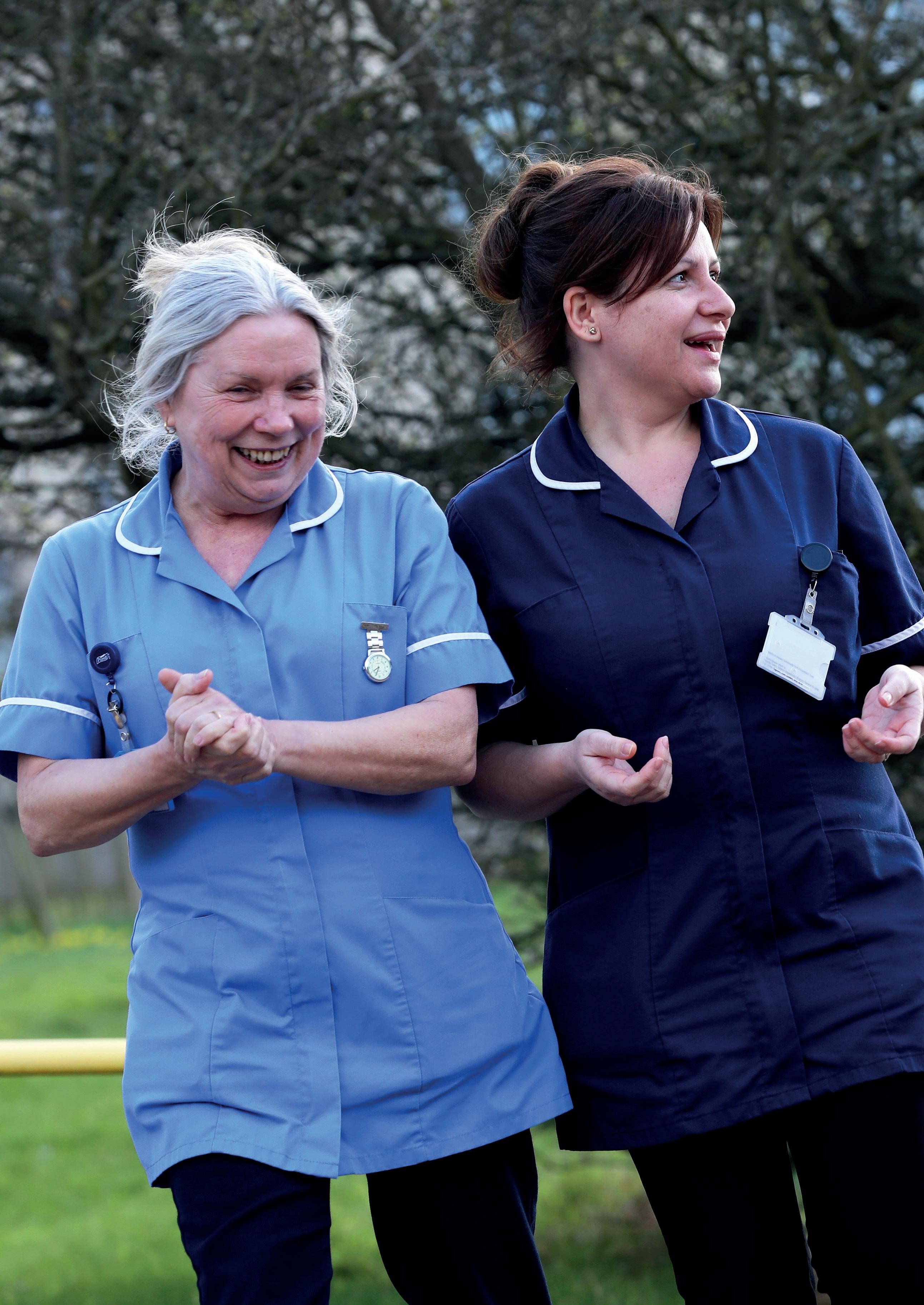
6.2
Sussex Community NHS Foundation Trust’s organisational development team offers various leadership courses.
Some are for people thinking of becoming leaders or new to leadership posts, and others are more advanced courses to develop leadership skills for senior posts.
Over the last 12 months, more than 350 staff have attended courses covering topics including inclusive leader, leadership masterclass, leading change and leading people.
6.3
6.1
Coaching and mentoring schemes are confidential and provide a place for reflection with the aim of supporting staff to work through challenges and to set achievable goals.
This service is managed by Kent, Surrey and Sussex (KSS) Leadership Collaborative and provides a network of qualified coaches across the Kent, Surrey and Sussex area.
It offers access to support from coaches within the trust or through the Health Education England KSS coaching and mentoring network from a coach in another organisation.
SCFT supports the Stepping Up leadership development programme for aspiring Black, Asian and minority ethnic staff. The programme is designed to bridge the gap between where applicants are and where they need to be, to progress into more senior roles.
If a service has a new admin role available they can ask the organisational development department’s admin hub to send it to all admin staff in the trust.
This might be an expression of interest, secondment opportunities or to flag up a job advert already on the job site.
This saves time and money on external recruitment and helps to retain staff who might have been thinking about leaving the trust to find a new job elsewhere.
The admin hub also hosts monthly meetings and events, currently through video chat, for networking and discussing administrative topics across the organisation.
As the vaccination hubs are starting to scale down in 2022, Sussex Community NHS Foundation Trust is looking to retain those staff by redeploying them in several ways.
Those who expressed interest in general support work in wards have been temporarily redeployed there, sitting with patients for company and to help them with small tasks.
As of March 2022, 25 people have been redeployed this way.
This gives them a chance to experience some elements of the healthcare assistant role, and if they enjoy it, they can speak to clinical leads to start shadowing.
They can then be upskilled into the full healthcare assistant role and join the trust to cover these shifts, or even apply for contracts if or when they are available.
For the rest of the unregistered workforce from this pool, they will be offered places on the trust’s general admin bank.
Does the organisation offer opportunities for career advancement for all based on ability and potential, not connections?
“Over the last 12 months, more than 350 staff have attended courses covering topics including inclusive leader, leadership masterclass, leading change and leading people.”
They will fill in non-clinical gaps in services across the organisation for roles that they are able to step into, increasing their skillset as they can try out new environments and re-skill.
They may then choose to apply for admin contracts in those services if or when they are available.
The career clinic and retention team, along with business partners, try to match up staff who have finished fixed-term contracts with vacancies in the trust, to retain those staff.
Another way for staff to progress is to help them from the moment they feel unsettled in their current role or are starting to think about other options.
The organisational development team runs a phone line that helps staff on their next steps by seeing what opportunities there are in the trust to develop and feel happy in their role.
In 2021, the team who operates this line had 80 career conversations with staff. The majority were signposting, advice on applying for internal vacancies, or flexible working advice.
Most staff who have called the line are retained, and a few have gone on to secure a promotion.
Interview support is given for staff who are applying for internal jobs. This is currently on a demand basis and is not universally available.
Widening access to savings & credit 7
Goal 7: Widening access to savings and credit
Does the organisation help widen access to responsible credit and close the savings gap?
7.1
Sussex Community NHS Foundation Trust offers many staff benefits such as referral lines, discounts and schemes, covering wellbeing, support networks, resources for carers, financial support, travel and development.

For example, Salary Finance is a resource hub and employee benefits scheme helping staff to develop financial wellbeing strategies and become financially healthier and happier.
Home Electronics is a salary sacrifice scheme for the purchase of home electronics including household appliances, computers and home entertainment.
Staff Direct is the trust’s bank workforce which staff can join if they want to work additional hours to boost their income.
The NHS Pension Scheme is a voluntary scheme available to all NHS employees. Its benefits are paid in addition to the basic state pension.
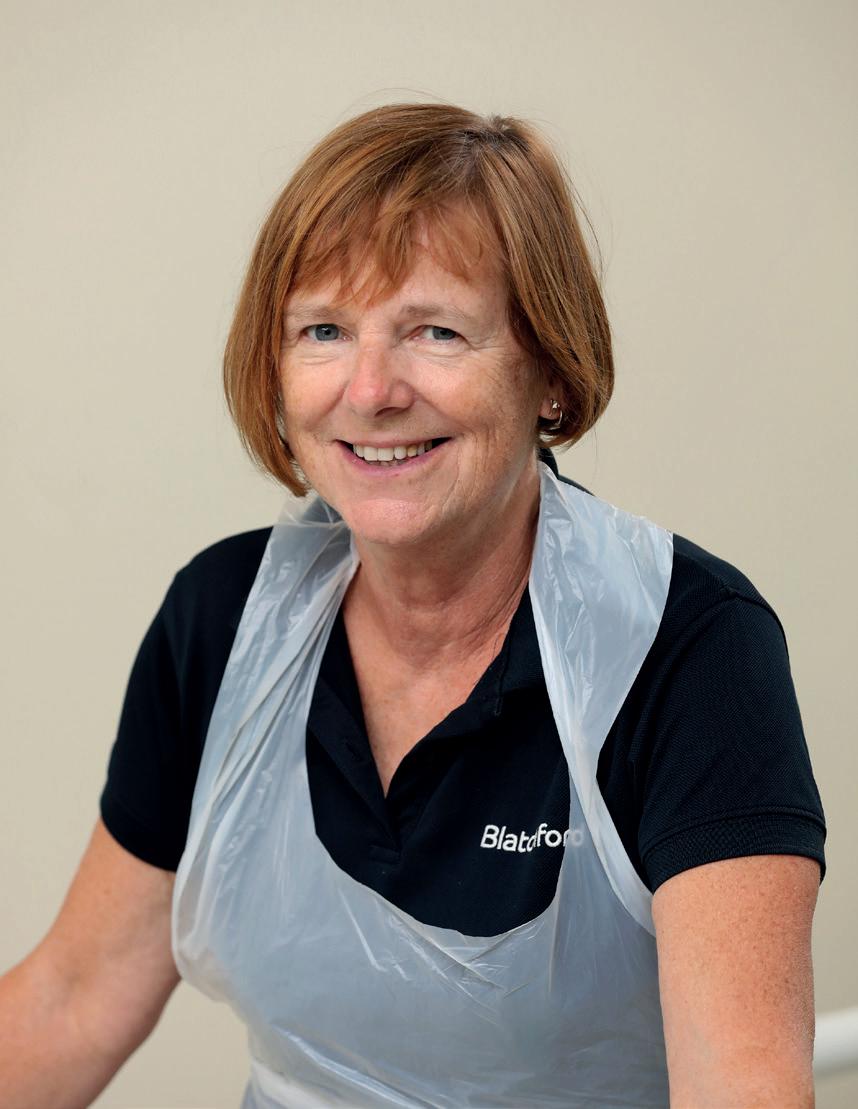
Does the organisation improve mental and physical health at all ages to boost overall well-being to allow people to fulfil their potential?
8.1
Sussex Community NHS Foundation Trust continually develops mental and physical health support to boost overall well-being to allow people to fulfil their potential.
For example, the Connect Phoneline, a confidential service that is available for individuals and teams, provides dedicated wellbeing help and support to staff.
The Health and Wellbeing Passport contains personal information which encourages conversations between staff and their managers as part of performance development reviews.
Health Assured is the trust’s employee assistance programme and offers confidential support for staff and their immediate family. It has a free 24/7 hotline.
The carers’ health team supports staff with caring responsibilities and helps them to develop individual strategies to reduce the strain of coping with their caring role.
The Wellbeing at Work festival is held every year to celebrate how to boost wellbeing inside and outside of work.
And the Occupational Health Service will take referrals for any mental health condition or concern that is affecting work within the trust.
More than 60 staff have been trained as mental health first aiders and are located in a variety of clinical and non-clinical teams.
They are willing to be contacted by any staff member
who is experiencing times of difficulty or who are struggling with symptoms of a previously identified period of low mood or considerable worry.
8.2 Public health
SCFT was one of the first trust’s to appoint a public health consultant. This is part of the trust’s wider work around population health (which is one of SCFT’s strategic priorities).
The trust was one of the major players in the vaccination programme in Sussex with around 1 million vaccinations administered to date.
Health visitors from the trust are public health nurses who are trained in public health. And a lot of the services that the trust provides are public health services.
Closing the digital divide 10
Is the organisation working to close the digital divide in technology access, skills, opportunities, and infrastructure?
Sussex Community NHS Foundation Trust has an extensive digital strategy and has already implemented a digital transformation project.
It is a member of the Digital Aspirant programme which supports NHS trusts to raise their digital maturity by supporting them to deliver a set of core capabilities.
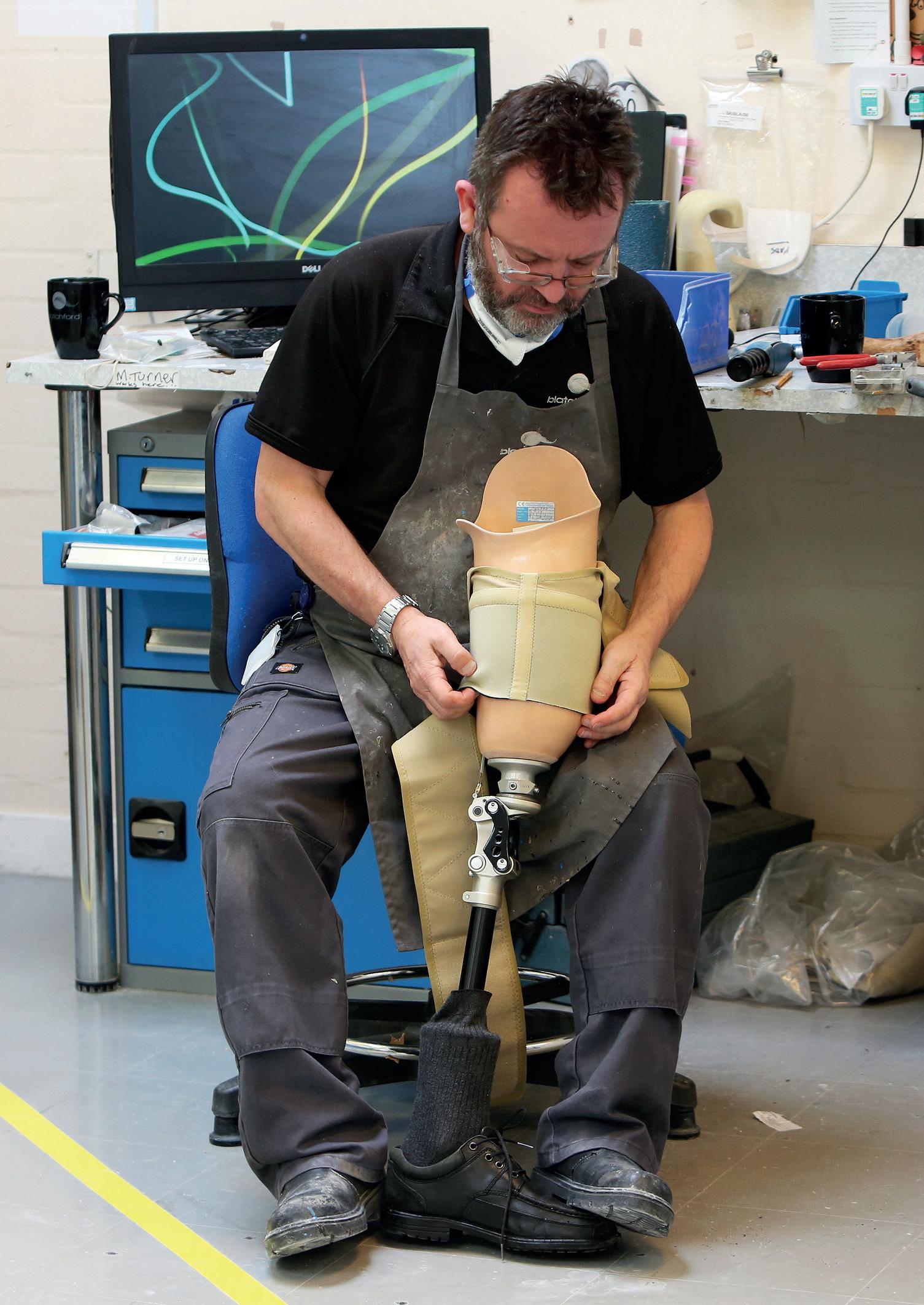
Is the organisation developing the physical infrastructure that connects people and places to opportunity?
Sussex Community NHS Foundation Trust is committed to supporting the newly formed Integrated Care System in the provision of new Health Hubs, in line with the directions of the NHS Long Term Plan to focus on place-based health provision.
The Trust has worked closely with Adur & Worthing Council to ensure the successful progress of the Worthing Integrated Health Hub (due to be completed in 2023), of which SCFT will be a major tenant and stakeholder.
SCFT is also working on initial plans for a Health Hub within Chichester, for which SCFT will be a major tenant and stakeholder, to support the provision of required place-based health care in West Sussex.
The Trust is looking at finding a capital balanced and sustainable way to redevelop its largest site, Brighton General Hospital.
The business case will need to be reworked to reflect changes post the pandemic phase, but the aspiration is to build a major health hub of c. 10,000m2, which will include community based physical and mental health services as well as several hundred homes on surplus land, which will also act as the main source of funding for the health infrastructure investment.
In line with SCFT’s commitment to ’Providing Excellent Care within the Heart of the Community’ SCFT are currently in the process of re-obtaining key property assets of Zachary Merton Hospital in Littlehampton, Arundel Hospital, and the Richard Hotham unit at Bognor Regis War Memorial Hospital – all within the district of West Sussex.
SCFT believes as the commissioned provider of community care, that the Trust is best placed to hold and maintain these assets for the provision of community-based health care.
Place-based healthcare is predicated on the premise of healthcare within the community, therefore it is considered to be an essential requirement that new infrastructure will always be situated in place with good transport connectivity.
Is the organisation helping people live in quality, affordable homes so people can live in safe and sustainable communities?
Sussex Community NHS Foundation Trust is committed to supporting the delivery of a Net Zero Carbon Health Service by 2040 in line with the NHS Long Term Plan
As part of the Trust’s workstream of the Green Plan, it is its ambition to ensure the transport and travel that links healthcare and the communities is low cost, low carbon and conducive to good health and wellbeing.
To support reduced emissions and cleaner air, SCFT has been upgrading the Trust fleet to include 189 alternative fuel vehicles (fully electric, plug-in hybrid or selfcharging hybrid models) including 10 electric vehicles, 10 plug-in hybrid electric, and 44 vehicles as part of its low emission pool car scheme.
SCFT is also setting targets and plans to expand its EV charging infrastructure and fleet, and have continued to see lower levels of business mileage due to greater use of digital technologies during the pandemic, though now increasing compared to last year.
Sustainable housing
SCFT is committed to supporting the release of surplus Public Sector land to achieve new housing targets set by the Central Government.
In addition to the work of the Green Plan to develop sustainable communities, the Brighton General Hospital provides the opportunity to release c. 3 HA of land for new housing development: Brighton General, originally built as a Poor Law Institution, is no longer fit for purpose for patient care or corporate support services.
The biggest change project in the Trust will be to create a new health hub that accommodates services in modern, fit for purpose estate, but also releases the majority of the land on what is a sprawling campus of mostly Victorian institutional buildings.
SCFT is working closely with Brighton and Hove City council to find a way to reconcile stakeholder interests and to deliver new homes on the housing release land in a way that meets local needs in a city where the supply and affordability of housing is a key issue, but also in a way that is viable for project delivery overall.
Is
‘Care Without Carbon’ is Sussex Community NHS Foundation Trust’s sustainability strategy to reduce carbon emissions.
Approved by the Board in September 2021, Care Without Carbon has been key to the Trust’s progress this year. It sets out how SCFT will continue to meet the Trust’s vision to provide excellent care at the heart of the community, in the context of climate change.

As a leader in the sustainable health and care sector, SCFT is committed to meeting the ambitious NHS England Improvement (NHSEI) targets, and where possible, exceeding them.
The Trust will bring its direct emissions (NHS Carbon Footprint) down to Net Zero Carbon by 2040 and indirect emissions (NHS Carbon Footprint Plus) to Net Zero Carbon by 2045. SCFT have set an interim target of 57% CO2e reduction by 2025/26.
Delivering on this strategy will drastically reduce the
Trust’s environmental impact as a Trust and also deliver real health benefits to patients and the wider community.
SCFT’s vision through Care Without Carbon is clear - together the Trust will lead the way in Net Zero Carbon healthcare; protecting the environment on which patients’ health depends.
At the heart of the Care Without Carbon framework is the Trust’s Sustainable Healthcare Principles –Healthier lives; streamlined processes and pathways; and respecting resources.
SCFT is delivering this through the Trust’s eight workstreams in areas such as energy use, transport and waste, and also in the clinical decisions made in the organisation.
In relation to the element that focuses on energy use and buildings (Places), the Trust has:
Installed a 55kWp solar array on the roof of the Chailey Westfield building to support the net zero ambition for the building. The Trust is now working up a new heat pump project for the site to replace the existing gas boilers.
SCFT continued to purchase 100% renewable backed power, using only ‘clean’ renewable power –i.e. electricity from hydro, solar and wind only.
Between 2010-11 and 2021-22 the Trust has reduced its absolute carbon footprint by 3,993 tonnes CO2e. This is a 41% reduction against the 2010-11 baseline and puts SCFT on a trajectory to meet its 25/26 target.
the organisation ensuring that the energy transition is fair and creates opportunities across the UK?
Harness the energy transition 13
Is the organisation working to create a level playing field on opportunity for all, to fully unleash Britain’s potential for the first time?
Sussex Community NHS Foundation Trust produces an extensive annual report on equality, diversity and inclusion topics and targets.

This provides an overview of the trust workforce as a whole and which demographics work in the organisation, highlighting areas to be proud of and areas that need to be improved upon.
The 2020-2021 report said the proportion of black, Asian and minority ethnic staff grew by 55% per cent over the seven years from 2014 to 2021.
It added that 76 percent of black, Asian and minority ethnic staff felt the trust provided equal opportunities for promotion - 7 percentage points higher than the community provider benchmark.
However, there is a five-year increasing trend in black, Asian and minority ethnic staff experiencing harassment, bullying or abuse from other colleagues.
This is being addressed through freedom to speak up, engagement and the launch of racial justice resources for individuals and teams. The Trust has also set up a new zero-tolerance campaign towards racism with effective and visible action in response to racist incidents.
Among the trust-wide initiatives for inclusion were developing inclusive leadership masterclasses, and producing and publishing a racial justice ally-ship guide for staff.
The trust also produces the Workforce Race Equality Standard Report, which monitors protected characteristics in relation to recruitment.
The report details how many people in those groups progress - numbers that apply, are shortlisted, are offered an interview, attend the interview, and are appointed to a post.
Goal 14: Achieve equality through diversity and inclusion
Achieve equality, through diversity & inclusion
Sussex Community NHS Foundation Trust is a ‘Disability Confident’ leader.

The trust operates a guaranteed interview scheme for disabled applicants who meet the minimum criteria through the ‘Disability Confident’ scheme run by the Department for Work and Pensions.
This is just one part of the entire Equality and Diversity Policy and Procedure, which also extends these principles to making reasonable adjustments for accessibility in interviews.
These reasonable adjustments cannot be used as a reason to not appoint an individual.
The trust hosts four staff networks - the Disability and Wellbeing Network, BAME Network, LGBT Network and Religion and Belief Staff Network.
The aim of each one is to promote friendly, safe spaces for staff, encourage conversations, connect staff with relevant external organisations, and together promote an inclusive and diverse working environment.
Members of the executive board are sponsors of these networks, and members of these networks are trained to join panels to introduce a more diverse range of views.
Sussex Community NHS Foundation Trust continually develops to improve accessibility.
Posters have gone up around the trust on how to support assistance dogs and their handlers in the workplace and public areas.
There is a new dyslexia, dyspraxia and dyscalculia pathway for staff facilitated by the occupational health team to allow for appropriate workplace adjustments.
Green sunflower lanyards have been offered to staff to wear if they want to highlight that they have a hidden disability.
Sussex Community NHS Foundation Trust also has access to a reasonable adjustment fund to provide support for workers with disabilities or health conditions.
The People Directorate requests that interview panels for senior posts have at least one person from a black or minority ethnic background.
If necessary, the lead recruiting manager will approach the BAME staff network to ask if a member from that network can join the panel.
This is encouraged for other protected characteristics as a general practice.
This culture of seeking a diverse background is also extended to panels other than recruitment, for example committees.
“The trust hosts four staff networks - the Disability and Wellbeing Network, BAME Network, LGBT Network and Religion and Belief Staff Network.”
Sussex Community NHS Foundation Trust (SCFT) meets the Purpose Goals through a focus of equalising opportunity for those in the local community, regardless of traditionally marginalising factors.
This begins with its outreach programme concentrating on sharing employment pathways with children in local schools, particularly those in lesser performing districts across Sussex.
These pathways include an extensive apprenticeship scheme, with all apprentices over the age of 16 gaining vital workplace experience while continuing their academic studies.
The Trust’s processes for recruitment for its apprenticeship scheme, and for wider employment across SCFT, use computer software to safeguard the process from bias. The manager who is then responsible for shortlisting applicants does not receive any protected characteristics or the name of the person.
SCFT also offers strategic routes specifically tailored towards underrepresented groups to gain employment, advice, knowledge and experience with the Trust, such as SCFT’s Dare to Dream scheme.
This ensures young people from underrepresented and less privileged backgrounds have equal access to employment with the Trust, or the necessary resources to enter the wider employment market.
The annual Equality and Diversity report, and SCFT’s wider inclusion programme, continues this deliberate support for employees. The Trust is committed to supporting Black, Asian and minority ethnic groups with specific targets, and the 2020-2021 report fed back particularly encouraging data.
These measures serve as a benchmark for other organisations, to go beyond just open recruitment but specifically targeted and strategic work to reach those individuals who find it hard to engage in conventional recruitment processes. However, there is still work to be done on stamping out colleague to colleague racial-based harassment within the organisation.
As a community provider SCFT is at the heart of its local communities playing an important role as an anchor institution. The wider community should, and does, feel the benefit of a purpose-led NHS Trust on its doorstep.
The Trust has a strong focus on mental health and wellbeing, and is committed to ensuring staff wellbeing at a worrying time for the workforce. The ongoing impact of the pandemic and the growing cost of living crisis means that it is a crucial time for employers to look after the health and wellbeing of their staff.
SCFT is also leading the way on localised infrastructure developments, securing the long-term health of communities within Sussex.
In particular, the work completed on the old and no longer fit for purpose Brighton General Hospital. This is being completed in line with the Trust’s ‘Green Plan’ and serves as a standard to other organisations on sustainable and effective infrastructure improvements.
Sussex Community NHS Foundation Trust is positively affecting the lives of its community, staff and patients - reaching those who most need support. Importantly there is also a desire to go further and spread opportunity to a wider cross section of society.
This report should serve as a benchmark of best practice to other similar organisations, with the Trust perfectly positioned to continue and grow this work moving forward.
“SCFT is also leading the way on localised infrastructure developments, securing the long-term health of communities within Sussex.”
1. SCFT’s current outreach into schools is done on an ad hoc basis with some early conversations being held around greater integration with the ICB.
The trust could develop a more strategic and planned approach into outreach into schools to try and get the most out of its activity and have the most impact. Early engagement with school children around career opportunities within the NHS is absolutely crucial.
Outreach into local primary and secondary schools to give information around careers within the NHS, and how to access them, can raise awareness and aspiration from an earlier age. This outreach could feed directly into the great work that SCFT already does around apprenticeships, the kickstart scheme, work experience and other opportunities that are available post 16.
2. Following on from recommendation 1, SCFT has an important role to play in raising aspiration and highlighting the specific benefits of working within community healthcare.
Outreach around career opportunities within community healthcare could be tied in with any outreach being done around health interventions. SCFT will have regular contact with children through its services - it could ensure that every contact counts and that both health messages and employment opportunities are spread to all those within the community.
3. SCFT already runs a successful apprenticeship programme but even more could be done. The trust could both expand opportunities, and career progression through apprenticeships. Working with other partner organisations in the region, SCFT could set a target of having a greater number of apprentices as a percentage of employees at the organisation at any one time.
An internal process could also be introduced that before going out to external recruitment an attempt should be made to recruit an apprentice from the existing workforce, particularly from entry level roles
4. SCFT has a number of coaching and mentoring programmes which are a crucial part of ensuring fair career progression.
Another important aspect of fair career progression is identifying what kind of employee progresses and where blockages appear. SCFT could identify individuals in need of further support through strategic socio-economic tracking.
Through four questions developed and implemented by the Equality of Opportunity Coalition, part of the Purpose Coalition, the trust could identify the socio-economic background of all employees. These four questions are:
‘What was the occupation of your main household earner when you were aged 14?’
‘Which type of school did you attend for the most time between the ages of 11 and 16?’
‘If you finished school after 1980, were you eligible for free school meals at any point during your school years?’
‘Did either of your parents attend university and gain a degree (e.g. BA/BSc or equivalent) by the time you were 18?’
Once further information and data is collected on employees, tailored support mechanisms can be undertaken.
5. As the lead organisation responsible for the vaccination programme, SCFT has had the opportunity to engage with all parts of the local community. The trust should take advantage of this engagement and the lessons learnt from the mass vaccination programme to reach people who would not normally consider a job in the NHS.
This could be carried out strategically - specifically targeting those from lower socio-economic backgrounds and other groups that the Trust has a particularly low level of contact with, using the data gained from the vaccination programme.
The communities and settings where relationships were built over the pandemic also have the potential to be informed of non-clinical opportunities, specifically roles not traditionally associated with working for the NHS.
6. One of the biggest issues facing the NHS currently is recruitment. The trust has several initiatives in place to ensure that its recruitment processes are as open as possible. One other way that it could look to attract a more diverse workforce is to introduce more flexible working hours.
Flexible working would open up opportunities to those with children or carers. The trust could explore ways in which they could incentivise getting parents back into the workforce, such as providing discounted rates at local authority holiday clubs. The effectiveness of any new initiatives can be assessed using a simple audit of activities.

